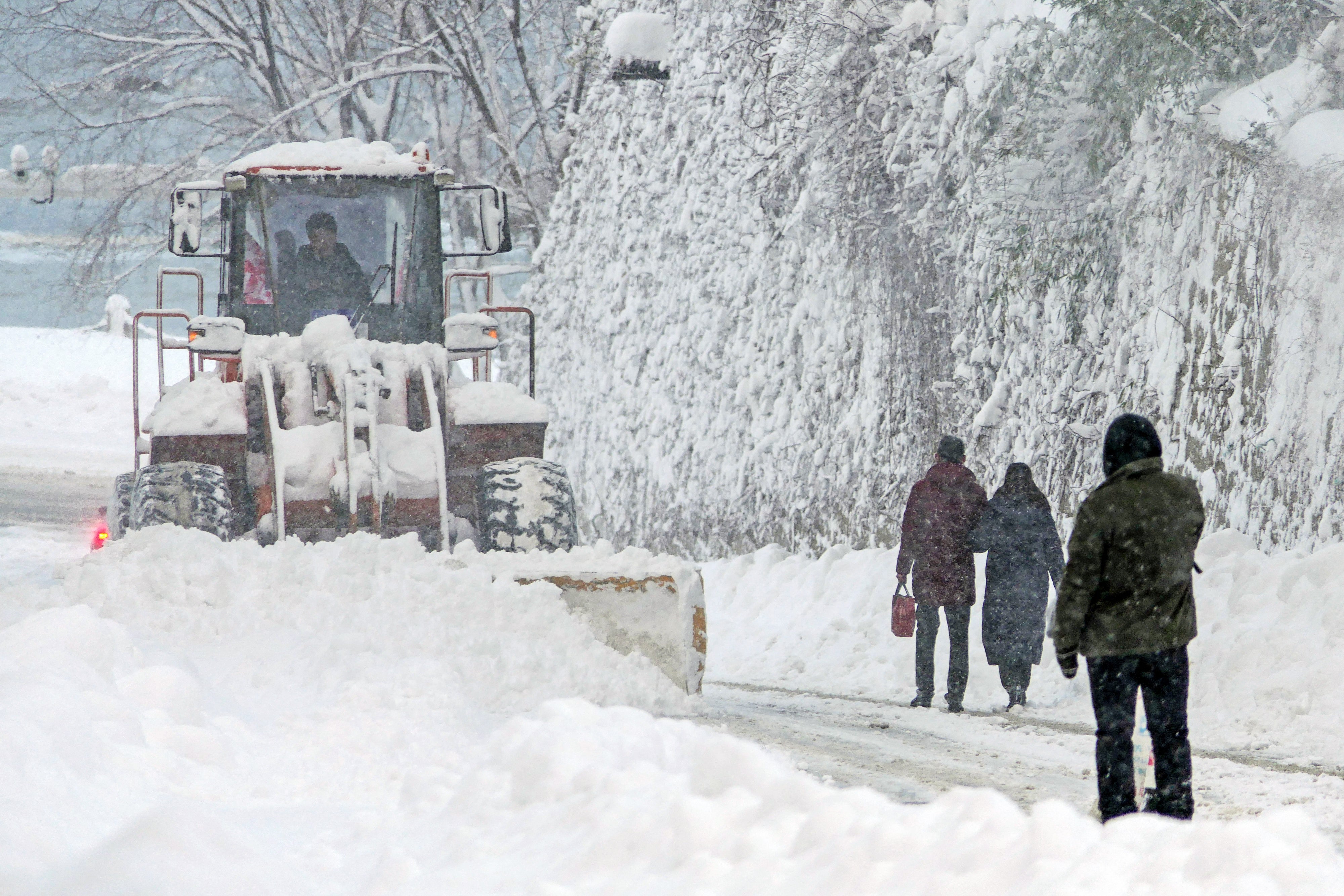China’s record-breaking cold wave prompts fears over vegetable crops
Temperatures are expected to remain 5 to 7 degrees Celsius lower than seasonal norms

Your support helps us to tell the story
This election is still a dead heat, according to most polls. In a fight with such wafer-thin margins, we need reporters on the ground talking to the people Trump and Harris are courting. Your support allows us to keep sending journalists to the story.
The Independent is trusted by 27 million Americans from across the entire political spectrum every month. Unlike many other quality news outlets, we choose not to lock you out of our reporting and analysis with paywalls. But quality journalism must still be paid for.
Help us keep bring these critical stories to light. Your support makes all the difference.
Cold weather in China during the beginning of the spring season is threatening vegetable and oilseed crops, prompting the government to dispatch experts to support farmers.
The National Meteorological Centre issued its highest alert for cold temperatures for the third straight day on Sunday after a cold snap plunged temperatures down to record lows for the season.
Over 400 weather stations in China broke the lowest daily high-temperature record for late February, according to preliminary data shared by Jim Yang, a meteorologist with the Chinese Meteorological Association.
Temperatures are expected to remain 5 to 7 degrees Celsius lower than seasonal norms in central-southern and northwestern China for the first half of the week, according to forecasts.
This temperature dip is causing stress to seasonal crops like vegetables and oilseeds, something China is planning to boost production of to reduce reliance on imports and bolster food security.
Already, the production of crops like cucumbers and capsicums was expected to fall by 10 to 20 per cent.
The Chinese Academy of Agricultural Sciences has deployed 40 teams of experts across the country to assess and minimise damage to spring vegetable crops. The teams are supposed to monitor weather changes and provide technical advice to farmers.
“The country has continued to experience extreme meteorological disasters and several sudden temperature drops, which has had a great impact on our vegetable production,” said the academy, a research organisation affiliated with the Ministry of Agriculture and Rural Affairs.
Oilseed crops, like soybeans, rapeseed and peanuts, could also see serious damage due to freezing rain and snow in Hunan and Hubei provinces, the top oilseed producing regions, according to a report by China-based commodity consultancy Mysteel released last week.
Up to 30 per cent of the rapeseed crops could be damaged or become more susceptible to fungal diseases, the report said.
Additionally, heavy snowfall may impact greenhouses and livestock production in provinces like Shandong and Henan, while low temperatures and rain could affect winter wheat in southern China.
The country is increasing its focus on food security due to the ongoing trade war with the United States and the economic stress brought by the Covid-19 pandemic.
But back-to-back cold snaps and erratic weather are challenging food production in the country. The latest cold snap comes after blizzards disrupted the Lunar New Year celebrations, sparking travel chaos.
China has been witnessing prolonged heatwaves and droughts in the summer. Despite the warming trend surpassing the global average of record breaking heat, the intensity of extreme cold waves has not reduced, but the impact of strong cold air or cold waves has increased.
Join our commenting forum
Join thought-provoking conversations, follow other Independent readers and see their replies
Comments